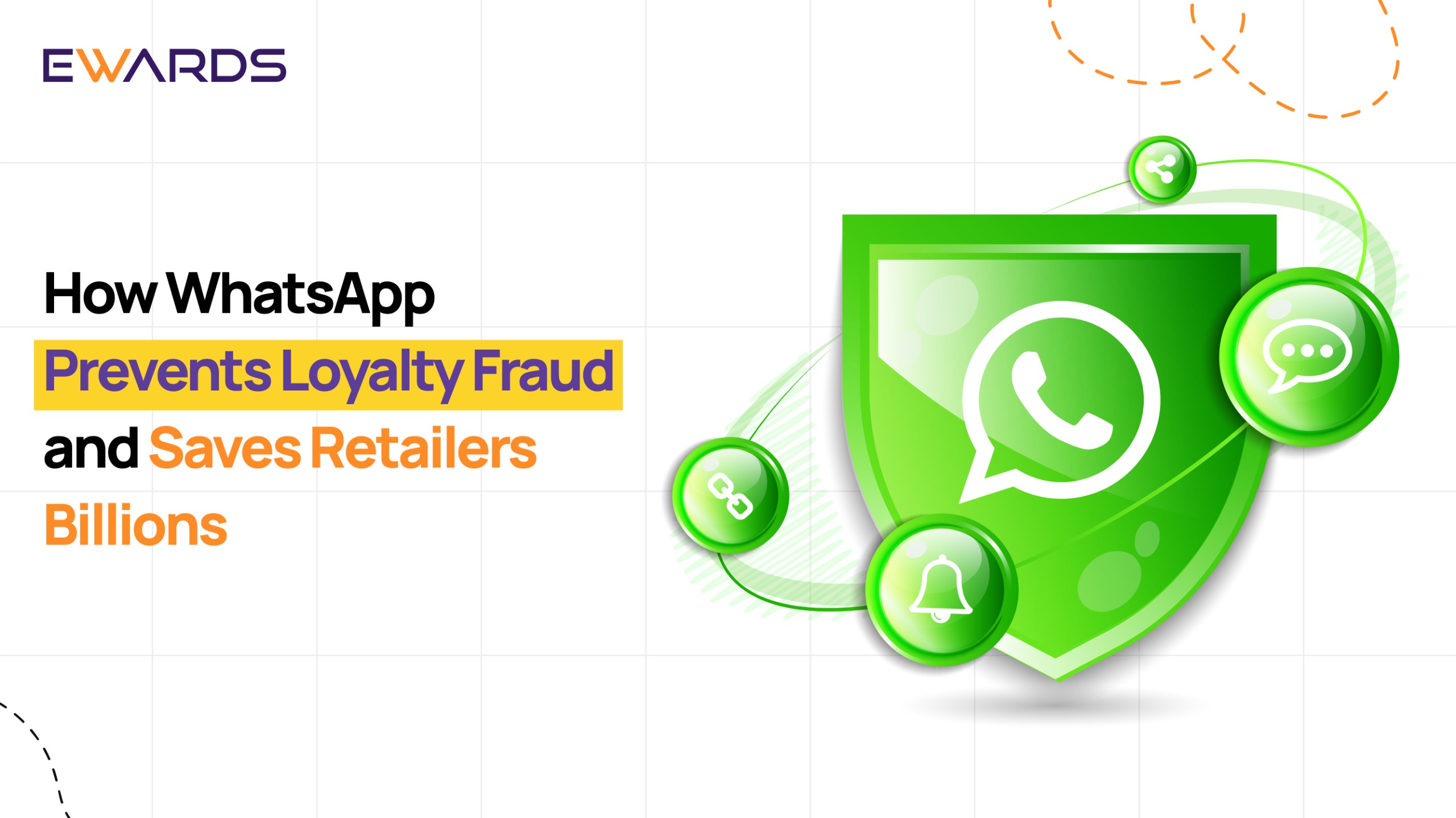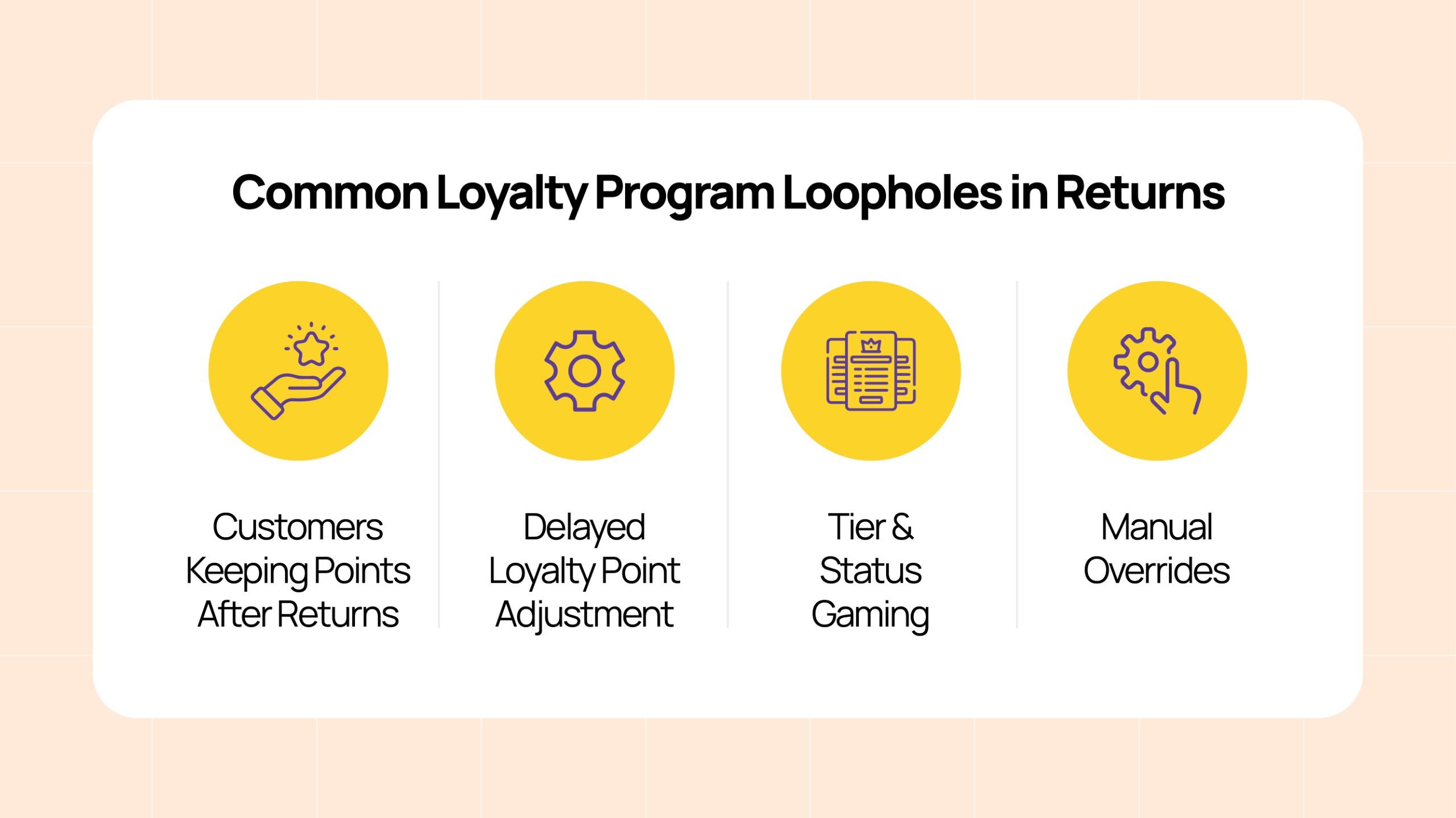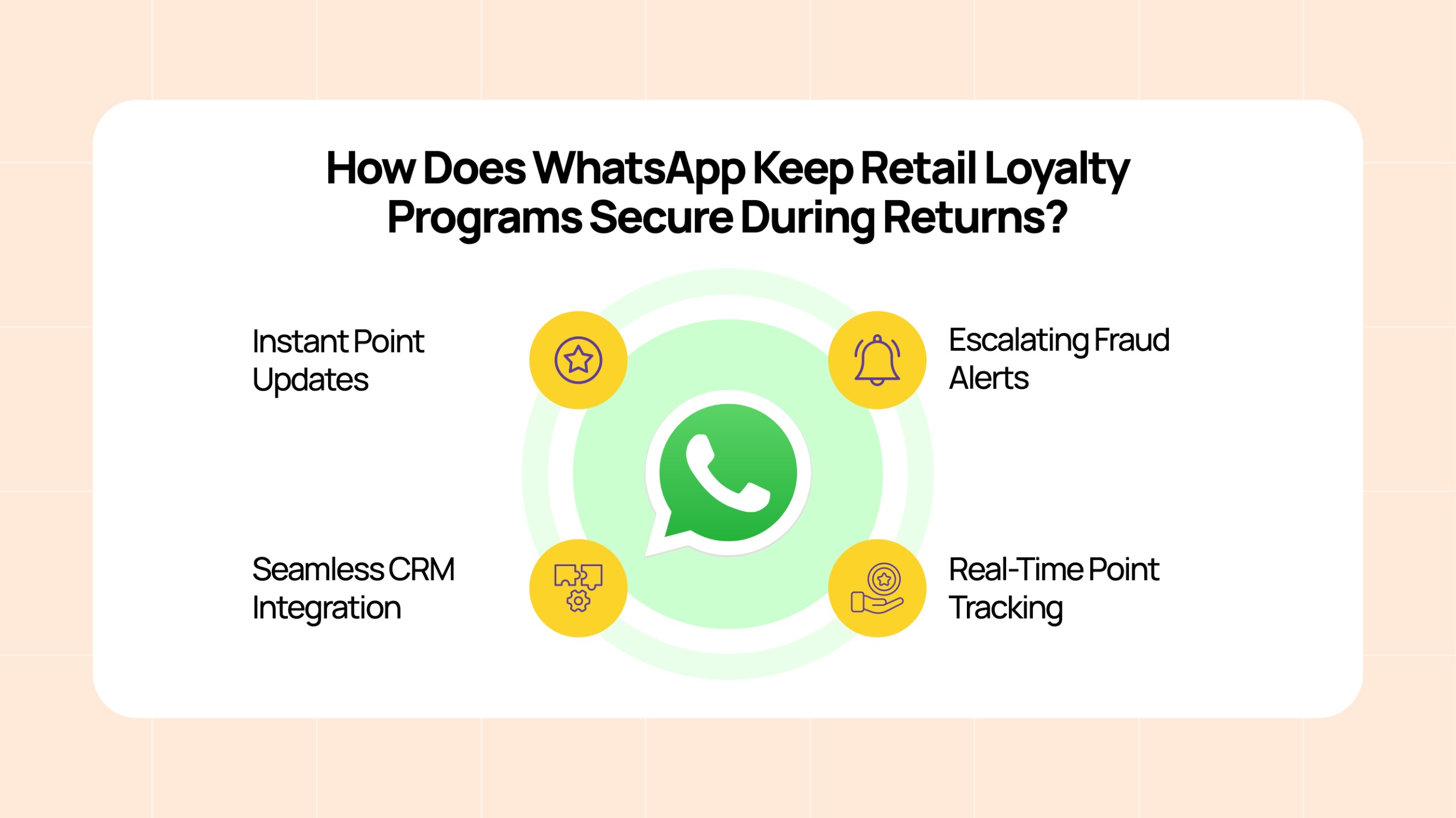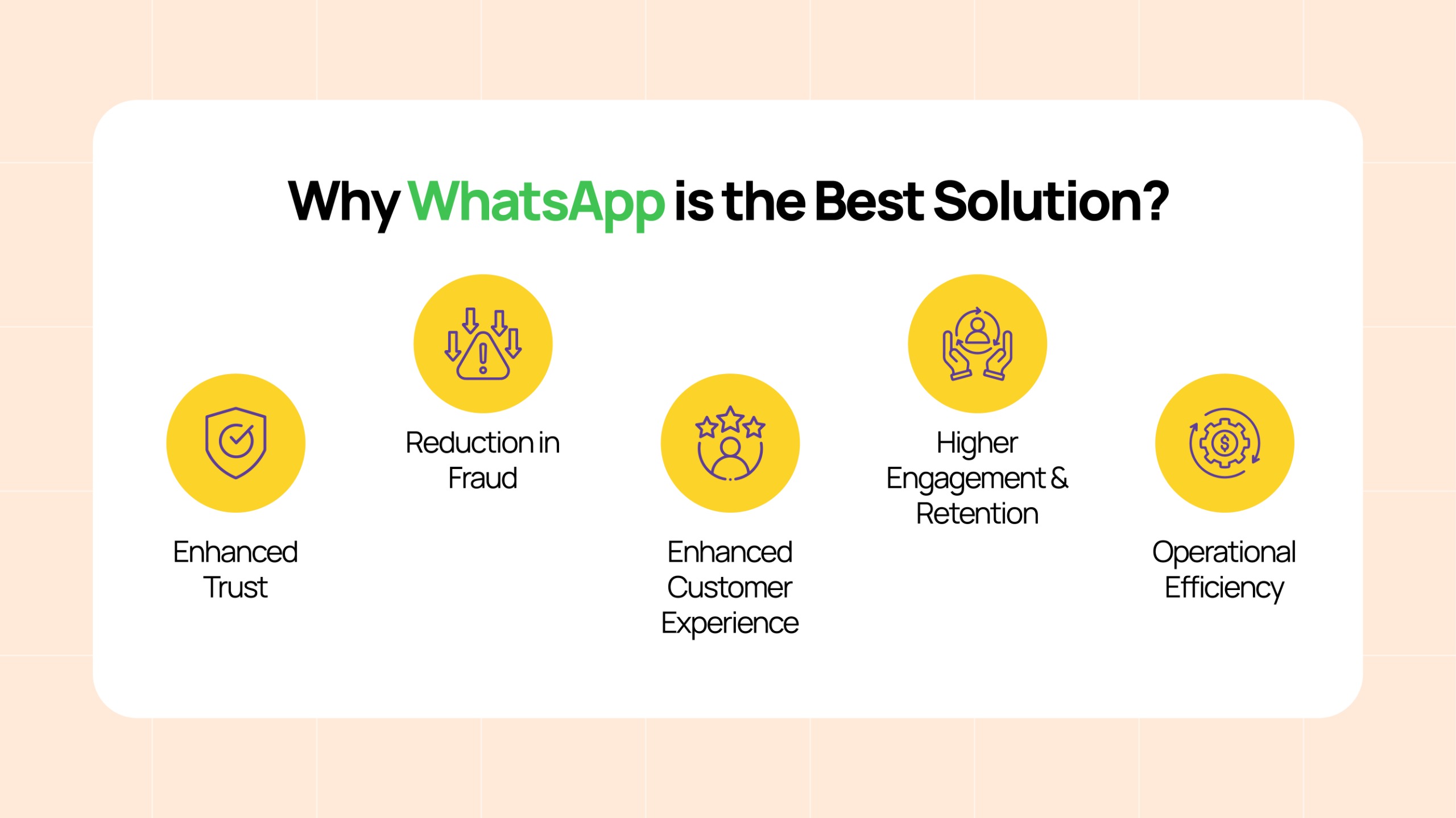
Loyalty programs are one of the retail industry’s most powerful engagement and retention tools. But what happens when these very programs become a target for fraud?
Imagine a customer purchases a very pricey item, earns loyalty points, and then returns the product but keeps the points. In these situations, if your system doesn’t automatically deduct points upon return, that’s a direct loss—and if this happens at scale, retailers can lose millions.
Loyalty fraud is a real threat. According to Forrester, loyalty fraud and abuse cost businesses nearly $1 billion every year. Meanwhile, 68% of customers say they will stick with brands that offer a seamless and fair loyalty experience (Queue-it).So, how can retailers safeguard their loyalty programs without frustrating honest customers? The answer lies in real-time automation and communication—and that’s where WhatsApp comes in.
Common Loyalty Program Loopholes in Returns

- Customers Keeping Points After Returns
One of the biggest problems retailers face is when loyalty points aren’t deducted after a return. If customers return an item but retain the points, they can:
- Redeem points for free products, essentially getting something for nothing.
- Stockpile points and use them fraudulently in the future.
- Game their way into higher-tier loyalty benefits (free shipping, VIP perks) by returning purchases after reaching a new tier.
This instance was observed with the customers of Axis Bank. Several Axis Bank customers placed high-value orders on e-commerce platforms. This helped them to earn corresponding rewards before they cancelled their orders (Hindustan Times). Because of this cancellation, the bank refunded the transaction amount without revoking the reward points. This led to major financial losses for the bank.
- Delayed Loyalty Point Adjustment
According to a study by Zinrelo, 84% of consumers say they’re more likely to stick with a brand that offers a loyalty program, and top loyalty programs can boost customer revenue by 15–25% annually, showing how much loyalty drives repeat business. Also, according to marketing research, it is far cheaper to keep a loyal customer than to acquire a new one. All this hinges on one thing: customer trust. If a loyal shopper’s point balance goes haywire, that trust can be shattered.
Some retailers update loyalty balances only at the end of the week or month, which means a customer could spend their loyalty points before the system updates. Customers get confused when they see points deducted days later, leading to complaints and disputes.
- Tier & Status Gaming
Many loyalty programs have tiers (silver, gold, platinum, etc.) based on spending. Ideally, if a customer makes a big purchase to reach a higher tier (enjoying perks like free shipping or VIP service) and then returns the purchase, the system should downgrade them or remove the tier benefits. But not all programs recalculate tiers in real time. This means that a customer could hit a tier and reap the benefits (perhaps even for months) despite having undone the qualifying spend via returns.
- Manual Overrides
According to industry reports, 22% of merchants have experienced loyalty fraud, and many more may not even realize it yet. In some cases, store employees manually adjust points for returns. There can be instances where points might not be deducted correctly, or too many might be taken. Not just this, fraud can happen on the inside too, where an employee might “forget” to remove points for a friend’s return, essentially gifting them freebies. Thus, not all of that is return-related, but it shows the scope of abuse is high when not audited properly.
How Does WhatsApp Keep Retail Loyalty Programs Secure During Returns?

WhatsApp has over 2 billion users currently and is as familiar to people as text messages are. This app has high open rates (98%) and provides real-time connectivity and automation to the retailers. So, how does a messaging app like WhatsApp help prevent loyalty point abuse during returns? WhatsApp, especially via the WhatsApp Business API, allows businesses to integrate their CRM and loyalty systems with a channel that is immediate and ubiquitous, and they leverage this feature to make the loyalty program accurate in the following way:
- Instant Point Updates
Automation makes sure that no human forgets to remove the points, and WhatsApp makes sure that the customers are informed transparently. This can be done the moment a return is processed. For instance, when a return is processed, the system can trigger an automatic WhatsApp message to the customer confirming the return and any loyalty point adjustment. Thus, WhatsApp brings this to the customer’s attention in real time so that they know exactly what happened, and there is no confusion or illegal use of the points that should’ve been removed.
- Seamless CRM Integration
Modern loyalty systems tie into CRM and point-of-sale data. WhatsApp can sit on top of that as a communications layer. If the CRM flags a return that needs a points reversal, the WhatsApp API can automatically send out a templated message. Many e-commerce brands already integrate WhatsApp with Shopify or Magento to send order updates , and extending that to loyalty would mean that the customers would get updates on their points balance and rewards in real time. This integration can help in catching issues early, too. For instance, if a customer spots a discrepancy in the WhatsApp update, they can reply to that text instantly. This would create a quick feedback loop that can fix any errors before they escalate.
- Escalating Fraud Alerts
With AI-driven WhatsApp alerts, retailers can stop loyalty fraud before it happens. It can help in:
- Preventing “Buy, Earn, Return” Scams: When a high-value return is requested, WhatsApp can ask for customer confirmation before adjusting points.
For instance, it can send texts like, “We noticed you are returning a Rs.500 item. The 500 loyalty points earned will be removed upon return. Please confirm.”
- Cross-check fraudulent Behavior
WhatsApp can track customers who repeatedly buy and return to exploit rewards and flag them for manual review.
- Real-Time Point Tracking
Retailers can eliminate customer disputes over loyalty points by using WhatsApp to:
- Send proactive updates on refunds and point reversals.
- Provide real-time customer support through chatbots.
- Offer a self-check option where customers can text “BALANCE” to check their updated loyalty points anytime.
Why WhatsApp is the Best Solution?
Integrating WhatsApp with the loyalty program loop isn’t just a gimmick – it can actually provide tangible benefits for both businesses and customers in the following ways:

- Enhanced Trust: When customers get immediate confirmation of loyalty point changes (earnings, deductions, refunds) in a WhatsApp message, it builds confidence. They don’t have to wonder if the return “went through” in the loyalty system – it’s there in writing. If anything looks off, they can reply and get it solved quickly. This openness makes customers feel the brand has nothing to hide, boosting their trust in the program’s integrity.
- Reduction in Fraud: Real-time adjustment closes the loophole that fraudsters thrive on. If someone knows that every return will instantly update points (and they will be notified), they’re far less likely to attempt tricks like the buy-and-return point scam. And if they do, the window to exploit is closed.
- Enhanced Customer Experience: Quick, conversational resolutions make customers happier, even in situations (like returns) that might otherwise sour their mood. Let’s face it – nobody likes having to call customer service over a few missing (or excess) points. By automating loyalty accuracy and communicating via WhatsApp, companies spare customers that hassle. It’s convenient: if you have a question, you can ask in the same chat thread that sent your update. No need to navigate phone menus or wait for an email reply. Plus, WhatsApp can handle rich content – links, images, even PDFs – so if needed, the company can send a detailed summary of the return or updated loyalty statement right there.
- Higher Engagement & Retention: In a world where consumers have plenty of choices, attentiveness can be a deciding factor to stay loyal. WhatsApp can be used to remind customers of points expiring or new rewards available, which can keep them engaged and coming back to use those points (which often means another purchase). By preventing negative incidents (like erroneous point deductions that frustrate a customer), you avoid losing loyal members.
- Operational Efficiency: The Integration of WhatsApp can cut down on manual workload and errors. When fewer people call about issues, the support team can efficiently concentrate on other tasks, and if something does need manual review, the systems in place (bots, alerts) have already gathered context, often making the resolution faster. Thus, the cost of managing the loyalty program goes down while its accuracy goes up – a win-win for the business.
Conclusion
Retailers cannot afford loopholes in their loyalty programs. Returns will always be a part of retail, but WhatsApp ensures they don’t become a financial liability.
By automating point adjustments, preventing fraud, and enhancing communication, WhatsApp gives retailers a powerful tool to safeguard their loyalty programs.
Are you ready to secure your loyalty program with WhatsApp?